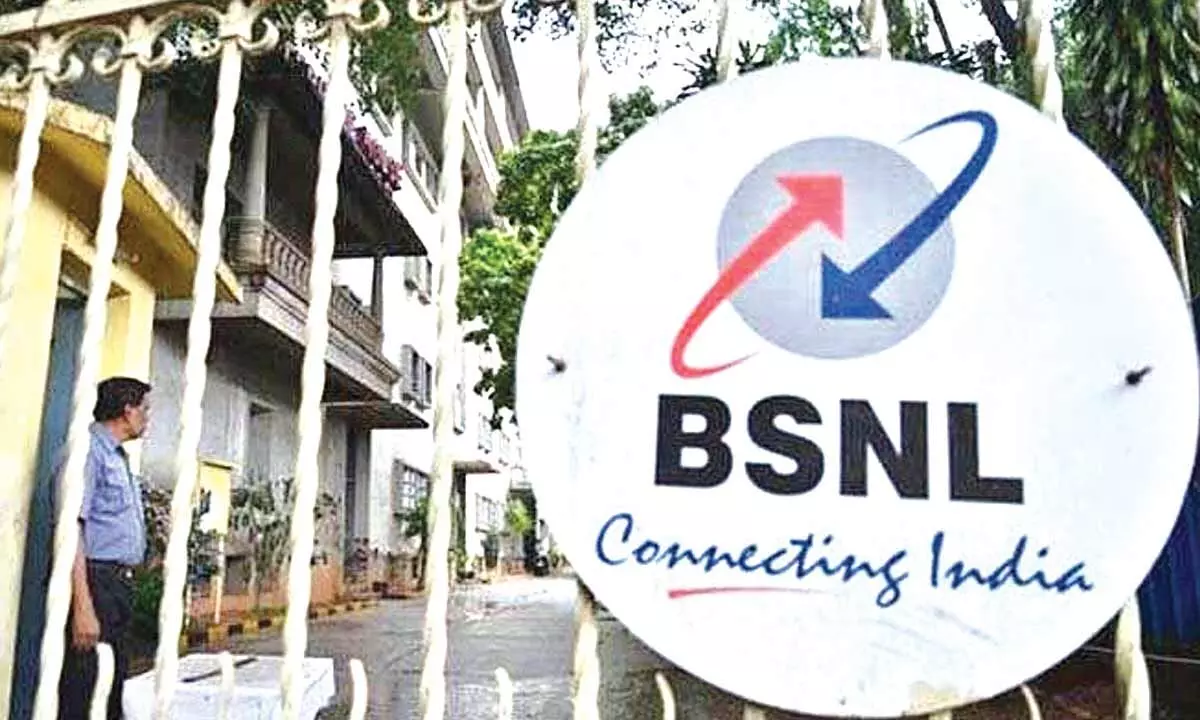Indigenization a heavy cross for BSNL to bear
The recent govt’s order that BSNL must use only indigenous technology may delay 4G and 5G rollouts
image for illustrative purpose

Now, nobody disputes the merit of promoting and adopting indigenous technology, but should it be at the cost of competitive edge? After all, we are not talking about weaponry where indigenization should get a lot of emphasis. Telecom is a sector, though officially defined 'strategic,' in which private players dominate
The government's decisions on Bharat Sanchar Nigam Ltd (BSNL) seem to be huge bets. The first one was its revival at a cost of Rs1.64 lakh crore. And now comes the government diktat to the public sector telecom's top brass that the company will have to rely 'only' on indigenous technology while rolling out 4G and 5G services.
Now, nobody disputes the merit of promoting and adopting indigenous technology, but should it be at the cost of competitive edge? After all, we are not talking about weaponry where indigenization should get a lot of emphasis. Telecom is a sector, though officially defined 'strategic,' in which private players dominate.
We mentioned earlier that the attempts to revive public sector enterprises (PSEs) fail. Air India was a recent example. Politicians' obstinacy to keep in the public sector resulted in losses running into tens of thousands of crores. Before that too, revival packages for PSEs came a cropper. Even BSNL got such a package of Rs 70,000 crore three years ago; it didn't succeed.
So, the latest package has been met with skepticism, including by this writer. The constraint of indigenization only makes matters worse.
As it is, BSNL is sick. The last time it made profit was 2008-09 - about Rs 575 crore. Since then, it has been incurring losses, the accumulated losses over Rs 1 lakh crore.
It is not that the government is not aware of the fundamental problems with BSNL. In August 2018, minister of state for communications Manoj Sinha explained the telecom PSE's losses in the Lok Sabha, "The market dynamics have changed in last five to six years… because of the entry of more number of operators, which have garnered major market share."
The former minister went on to list other reasons for BSNL's losses: providing services in non-profitable areas like hilly and remote regions, imperfect decision making. In the last four years, nothing has changed on the ground to suggest that the market dynamics has changed so drastically as to favour the turnaround of BSNL.
Appearing before the Standing Committee on Information Technology, a BSNL representative said in December 2014, "As far as technical shortcomings are concerned… all other private operators started their mobile services in [the] late 90s whereas the BSNL only could start in 2002… By the time our expansions were going on in full swing by 2005-06, we were No. 1 or No. 2 in many of the states. After that, the problem began. That was a problem of non-procurement of mobile equipment."
Then there is also the perennial public sector problem - too many employees and the salary bill. In 2021-22, the employee cost was about 43 per cent of its income from operations, while in the same period the corresponding figure for Bharti Airtel was 3.8 per cent. How can a company survive in a competitive environment with such adverse ratios?
Bureaucratic function and public sector decision making were the reasons that, as former minister Sinha had said in 2018, infrastructure upgrade got delayed. The recent order that BSNL must use only indigenous technology may also delay 4G and 5G rollouts. Using indigenous technology, especially in PSEs, may be a politically attractive move, but it doesn't appear to be sound in commercial terms. It's a risky bet, the adverse consequences of which the taxpayer will face.

